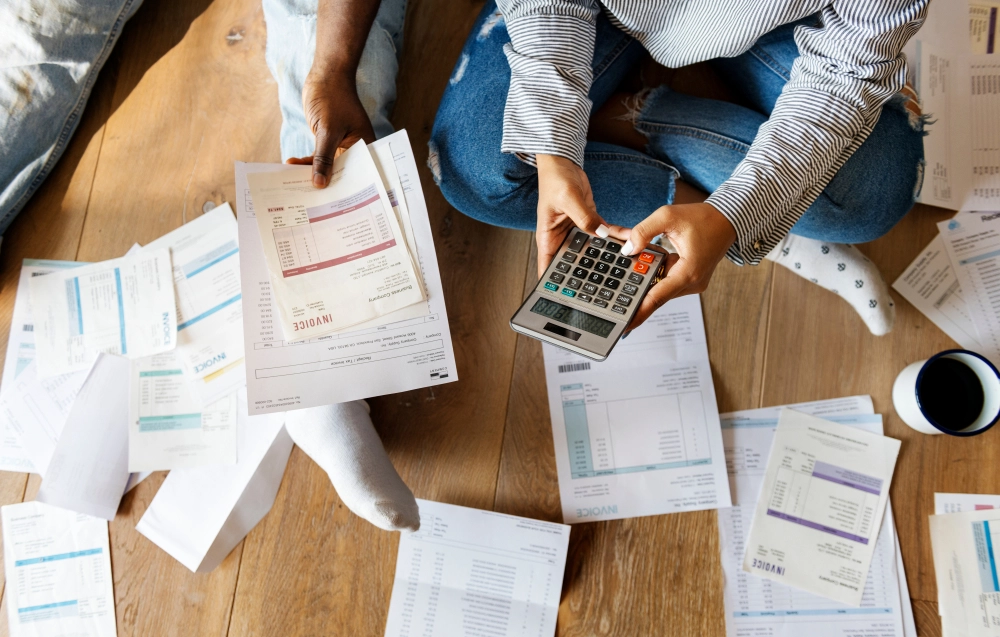South Africans are experiencing a debt crisis. We find out how you can cope with loan and debt defaults, and how you can get your finances back on track.
21 March 2022 · Fiona Zerbst

A perfect storm of interest rate hikes, rising inflation and increased borrowing is leading to a debt crisis in South Africa, according to debt counselling firm DebtBusters.
The company notes that there was a 32% increase in people applying for debt counselling in January this year, compared to last year, which shows the extent to which consumers are struggling.
We find out how you can cope with loan and debt defaults, and how you can get your finances back on track.
According to DebtBusters, people spent around two-thirds of their net income on debt repayments in 2021, and the situation is likely to deteriorate in 2022, thanks to factors like the petrol-price increase, higher food prices, and flat salary growth.
For some people, it is difficult or even impossible to service their loans and debts. Some may pay late or in part as they try to catch up, or they may skip payments altogether.
“A default occurs when a borrower of credit is not able to meet payments timeously, or simply avoids making payments,” says Ayanda Ndimande, Head of Branch Lending at Sanlam. “This obviously has consequences, like a bad credit record that can escalate to a judgement.”
Credit providers may be forced to hand you over for collection or legal action to recover monies owed. In a worst-case scenario, you could end up losing the car or home you can no longer pay for. Nobody wants to face this eventuality – and the good news is, there are ways to avoid it.
The worst thing you can do is to pretend the problem doesn’t exist. Face your situation head-on and don’t run away from your credit providers – rather, seek to make them your allies.
“Speak to your credit providers and state the facts of your situation,” Ndimande advises. “It is possible to work your way towards paying off debt – you can agree on a repayment plan and avoid missing new payment plan obligations.”
Some credit providers will be only too happy to offer you a grace period, also known as a payment holiday. This is typically an agreement you enter into with your creditors that allows you to waive debt repayments for a period of up to three months. In this case, find out what the terms and conditions are, as you may still have to pay interest on the amount owing.
A credit assessment will help you to evaluate whether you have enough cash flow to settle your debt obligations. If you are not overly burdened with debt, debt consolidation is a solution – that is, having multiple debts combined into one, single debt (usually a loan with favourable terms) that will help you to pay off what you owe.
“If you are over-indebted, however, there is always the option of debt counselling,” explains Ndimande. Debt counselling is a legal process that allows a debt counsellor to assess your outstanding debt, put in place a restructured repayment plan, renegotiate payment terms with your creditors and protect you against legal action.
Once you have paid off your debts in full, make sure that your credit providers inform the various credit bureaus so they can remove any adverse listings from your credit profile. A default is typically held on the system for two years and is automatically removed thereafter, according to the Credit Ombud.
Assuming you have not defaulted on your loans or debts – or you have gotten your finances back on track – there are ways to avoid falling into default.
“The best way to avoid this is to not take on any further debt,” Ndimande recommends. It is especially important to avoid taking on more debt to settle existing debts, which perpetuates the debt cycle (apart from using debt consolidation as a tool).
“The next step is to make a budget and stick to it, with the help of a credit management coach if needs be,” Ndimande says.
It’s important to keep an eye on your credit record and track your progress, particularly if you want to ensure that your credit score remains healthy.
“Always make regular payments, and pay off or reduce debt when you have any extra cash – say, if you receive a bonus, payment for working overtime, or monies from a ‘side hustle’,” Ndimande says. “It may be tempting to spend that money on little treats, but if you do have debt, it is better to pay that off first.”
A default is not the end of your financial wellness as your financial situation can change. However, it is wise to avoid defaulting as far as possible. If you do find yourself in this position, take immediate steps to remedy the situation.
Free tool

info@justmoney.co.za
4th Floor, Mutual Park, Jan Smuts Drive,
Pinelands, Cape Town, 7405
© Copyright 2009 - 2025 · Powered by NCRCB29
Terms & Conditions
·
Privacy Policy
·
PAIA Manual
View your total debt balance and accounts, get a free debt assessment, apply for a personal loan, and receive unlimited access to a coach – all for FREE with JustMoney.